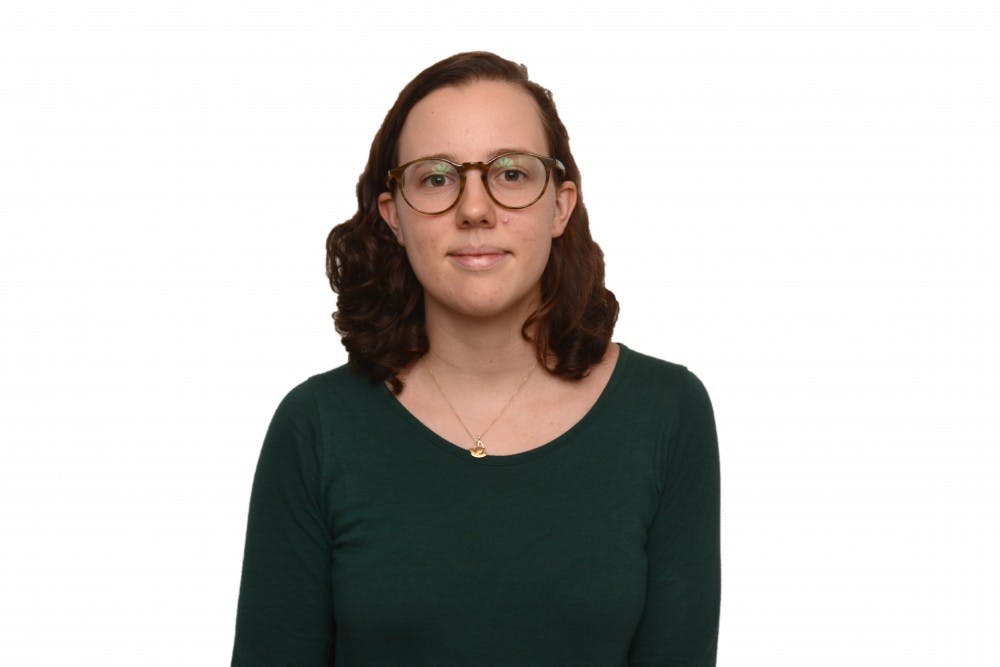As I waited for my bus to Maine, I readied myself to spend three weeks off the grid by mindlessly scrolling through my Instagram feed. While my eyes floated over selfies and vague acquaintances enjoying themselves on beaches, I remembered an observation made by rock musician and “Portlandia” star Carrie Brownstein. “We’re not quite sure if there is a point in doing anything anymore if it can’t be documented, if no one is there to observe it.” I began calculating the thousands of tiny moments I spend refreshing feeds and checking likes and started to seriously wonder if any of this made me feel good.
I hope not to offer yet another tired think piece on how social media corrupts our generation and takes the place of real and deep social interaction. Nor do I wish to write another catastrophizing account about millennials and our solipsistic tendencies. I am more interested in probing how our daily social media performance might stand in the way of genuine self-acceptance.
We live in a time when our most precious and most mundane moments become captured in posts for our critics and flatterers to either reject or embrace. Social media as a forum for self-empowerment actually gives an exceptional amount of power away to others who judge our lives and actions.
In a recent The New York Times opinion piece, Arthur Brooks distinguishes between self-love based on the opinions of others and self-love based on self-understanding. He writes that we find healthy self-love in “the enjoyment of a beautiful hike alone (not shared on Facebook) or a prayer of thanks over [one’s] sleeping child (absent a #blessed tweet).” Instead, how good we should feel often comes in the form of the measured approval of likes, hearts and reposts.
Beyond our search for the public validation of our quiet moments, our creation of public personas to embody our identities also holds consequences for how we come to know ourselves and relate to one another.
Social media makes almost anything personal feel political. We embellish our selfies and posts about a mundane activity, like going to the gym or cooking an organic meal, with political meaning — a workout followed by a kale smoothie becomes a subversive act that disrupts the status quo when I add a #fitfeminist.
Social media also makes the political feel acutely personal. Our online bios and posts are an odd mix of “I’m from Oregon. My favorite ice cream flavor is chocolate peanut butter. I’m a radical feminist. I believe Israel is an apartheid state. And my favorite movie is ‘Pulp Fiction’ ... duh.” Elective ideological leanings become just as known and certain as one’s favorite flavor of ice cream, a declaration not subject to a process of give-and-take dialogue. In the digital sphere, to challenge a political belief means to challenge one’s persona rather than one’s ideas. Even a well-intentioned question about someone’s political Facebook status feels like a personal threat to their online brand.
Our identities also become our leverage. “I’m from Oregon” and “I’m an anti-Zionist” become equally embedded in the brand and no longer warrant political discussion. The playing field of public discourse only shrinks when an online identity becomes both the object we leverage and the object at stake.
The promotion and defense of our robust virtual personas emerges as the more pressing matter over the pursuit of greater self-knowledge and maybe even, gasp, self-questioning. I think we find who we deeply are in the thoughts that keep us up late at night, the sheer terror and joy of falling in love, the grief that comes with loss and the resilience that follows.
I do not yet know the long-term sociological, psychological and physical effects of our social media practices. But, here is something I do know: I know that our attachment to social media and what it “gives” us has powerful consequences.
And, here is something I feel. I feel a sunny day more sweetly when biking around with friends than captured in a staged picture in my new sundress #springtime. I feel the pat on my back more strongly after finishing a tough day of essay-writing at the library than any number of Instagram likes on a picture of stacks of reading. Perhaps I’m being preachy, but I’m no better or worse than your most sardonic or self-righteous post. At least we’re in this together.
Clara Jane Hendrickson is a College senior from San Francisco studying political science. Her email address is clara@sas.upenn.edu. Follow her on Twitter @clarajanehen. “Praxis” appears every other Monday.
The Daily Pennsylvanian is an independent, student-run newspaper. Please consider making a donation to support the coverage that shapes the University. Your generosity ensures a future of strong journalism at Penn.
DonatePlease note All comments are eligible for publication in The Daily Pennsylvanian.





